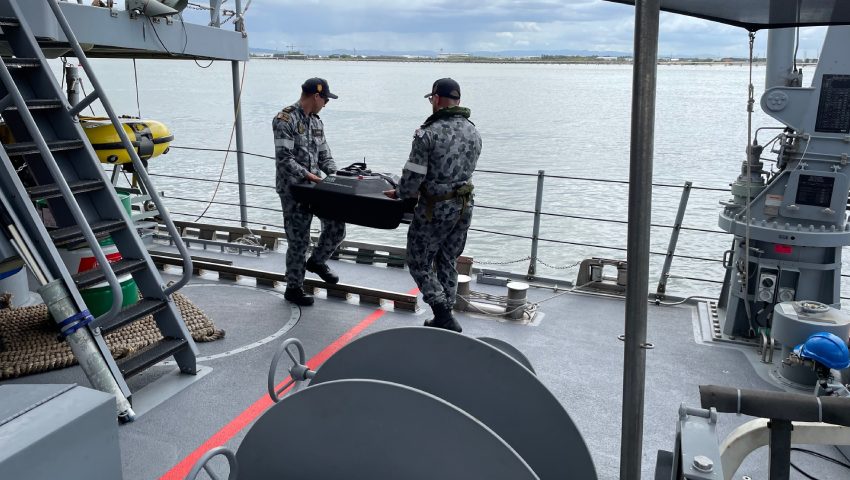The cyber security firm tested the satellite tasking software on maritime vessels during the Royal Australian Navy’s Exercise Phoenix.
To continue reading the rest of this article, please log in.
Create free account to get unlimited news articles and more!
BITSCore’s software, dubbed EVNTS, aims to enable human operators to direct surface or underwater vehicles to undertake a series of tasks.
The software was trialled during the Royal Australian Navy’s Exercise Phoenix which the company described as an Autonomous Warrior activity that aims to identify disruptive technologies.
“Our software allows a single operator to task many assets with a task, and the system lets the assets go and do the task autonomously – it can be many assets and many tasks,” BITSCore CEO Dr David Hyland-Wood said.
“One test autonomously placed a vessel with a camera for a surveillance task, while the other tasked a vessel capable of conducting sonar mapping.”
“EVNTS helps the operator who wants a task done find the asset capable of undertaking the task – and one or many assets go off and do the task.
“And that same technology can be applied across satellites, unmanned vehicles or many types of autonomous assets.”
Queensland company Australian Droid and Robot (ADR) owned the two autonomous surface vehicles used in the activity.
ADR chief technical officer Dr Dawid Preller outlined that unmanned vehicles keep operators safe by doing typically more dangerous tasks.
“Current operations require personnel to enter hazardous areas to conduct ISR missions; for example, crewed mine sweepers must enter mine fields to search for and to neutralise threats,” Preller said.
“These operations are hazardous and time consuming due to the one-on-one nature of the work.
“Our ASV solution is able to execute these tasks remotely and autonomously, without putting people at risk.
“The collaboration between our companies provided a ‘tasking market’ to the Navy operators where tasks (such as scanning the dock to detect IEDs) can be queued and prioritised and assigned to robots.”
The test comes weeks after BITSCore trialled a series of algorithms in the International Space Station and in orbit.

 Login
Login







